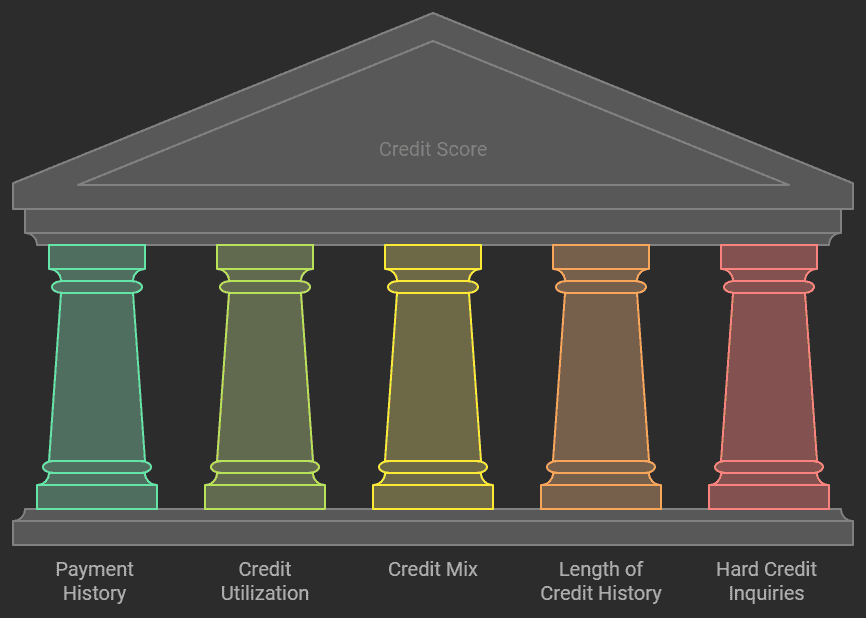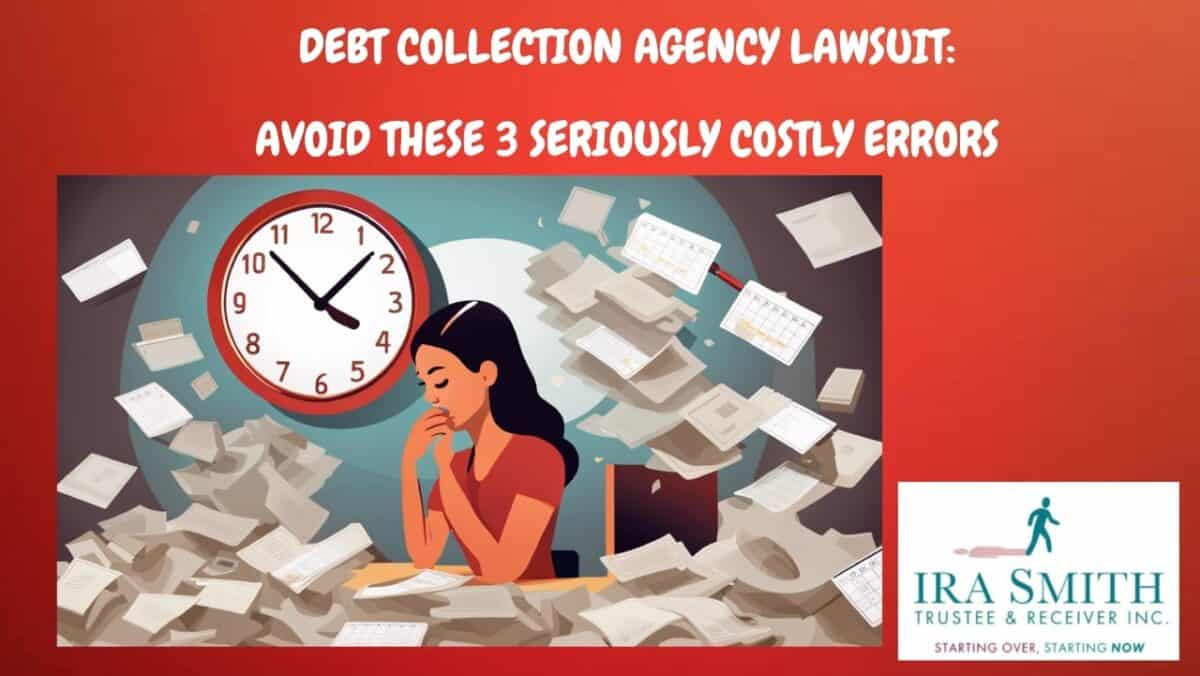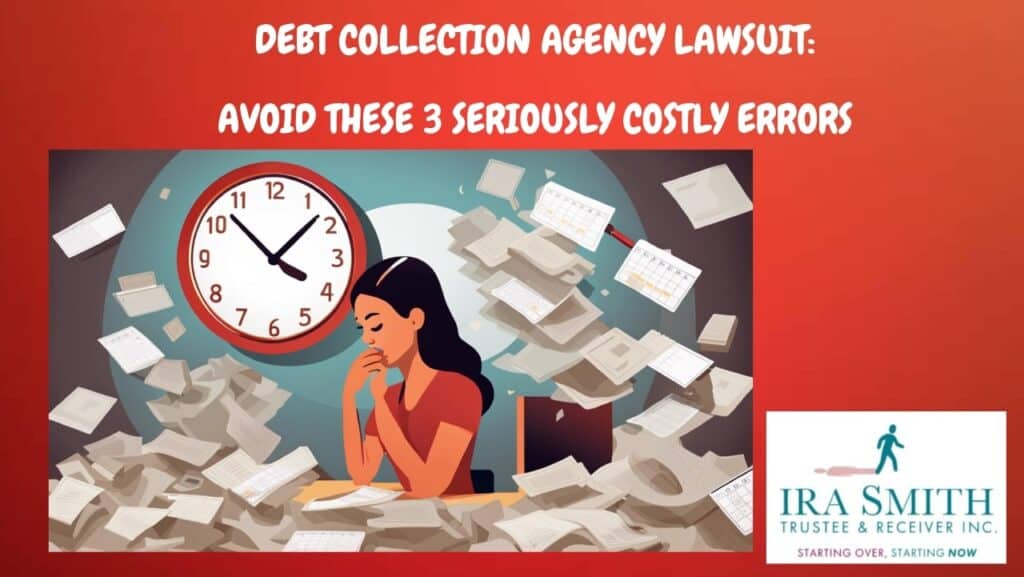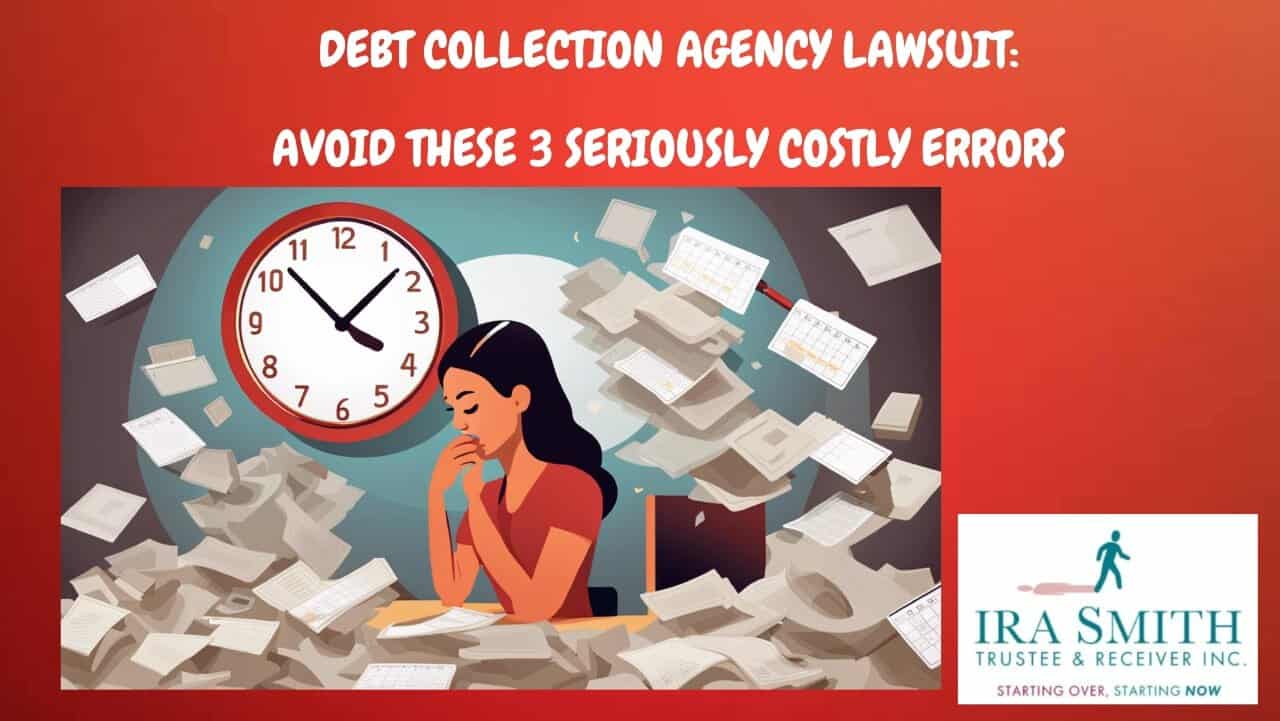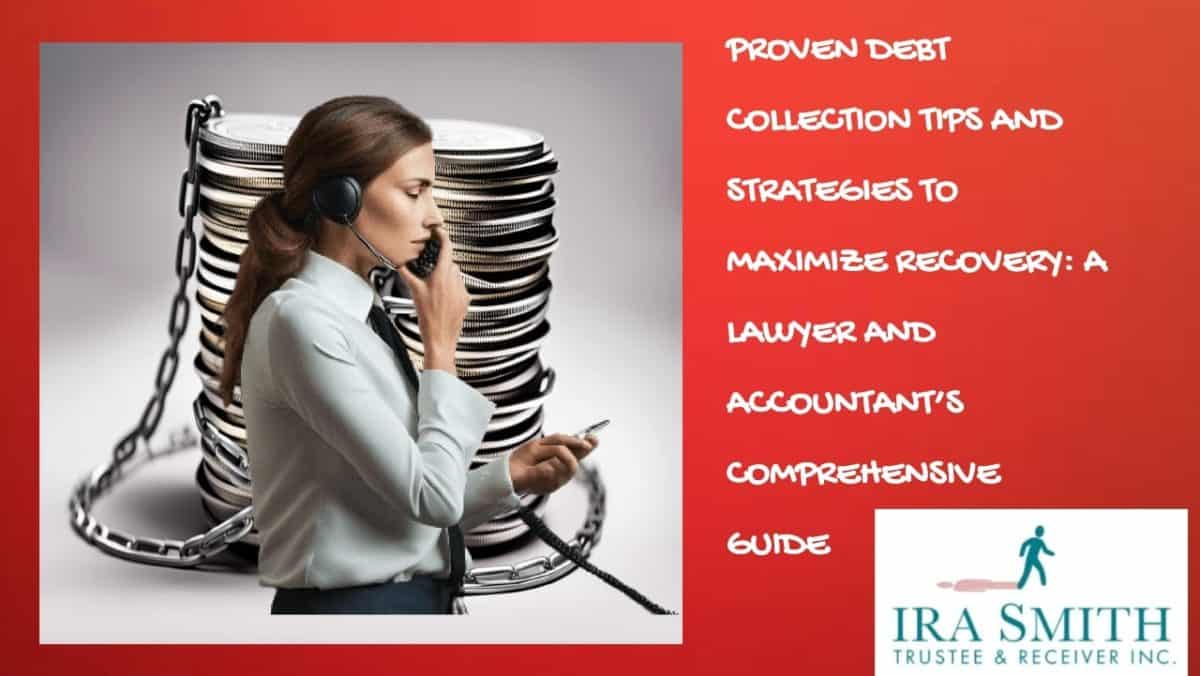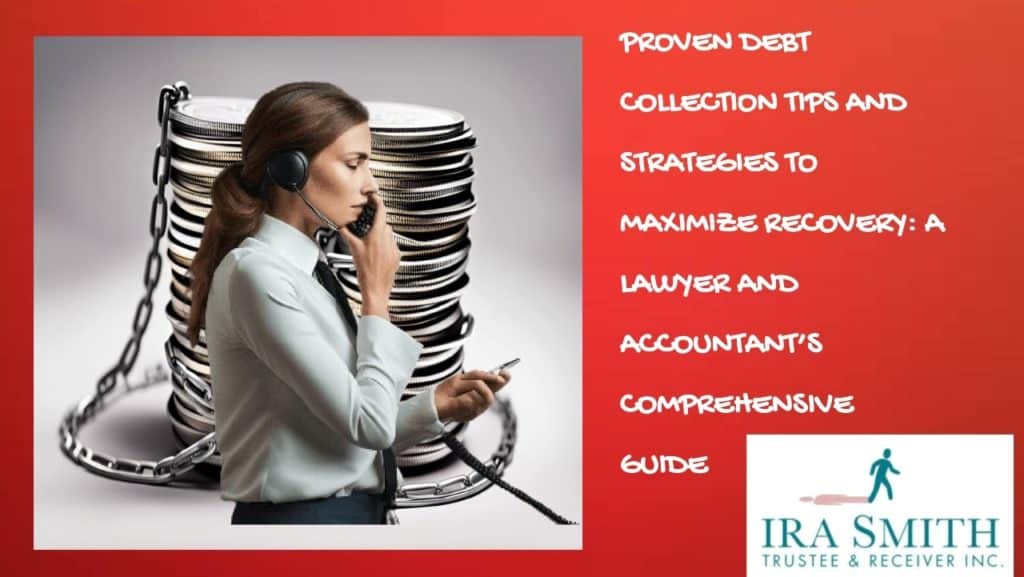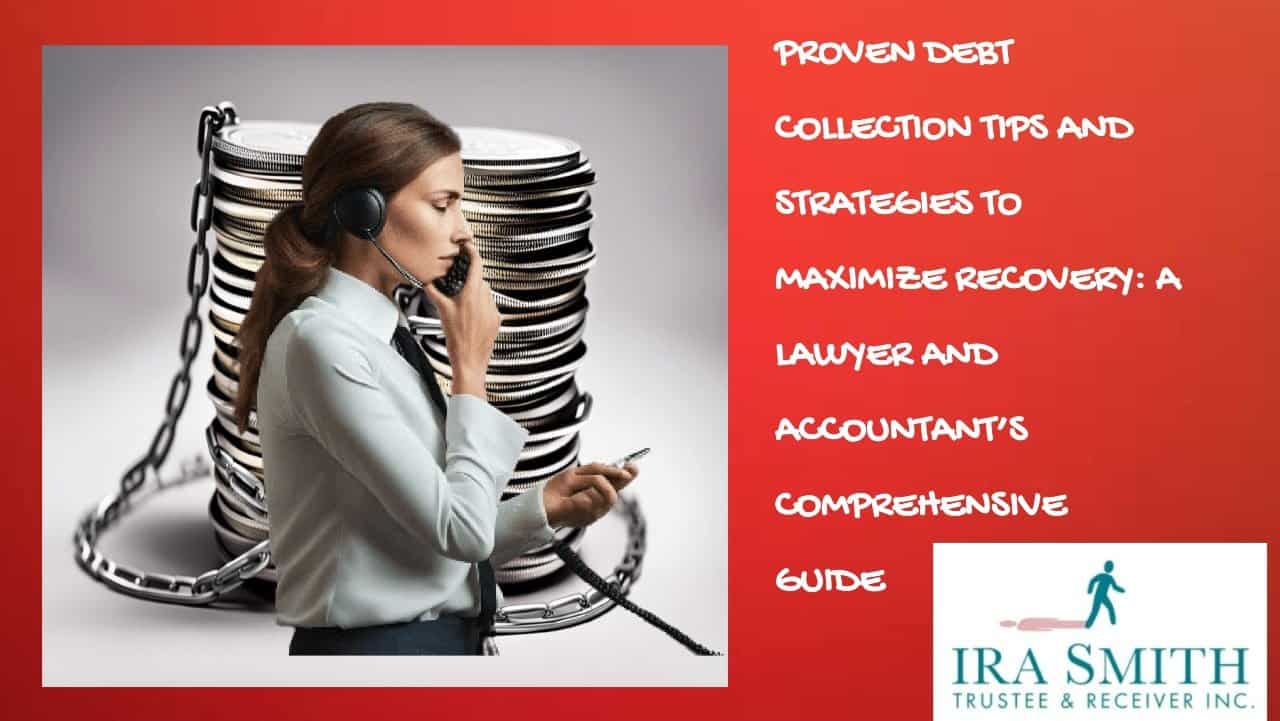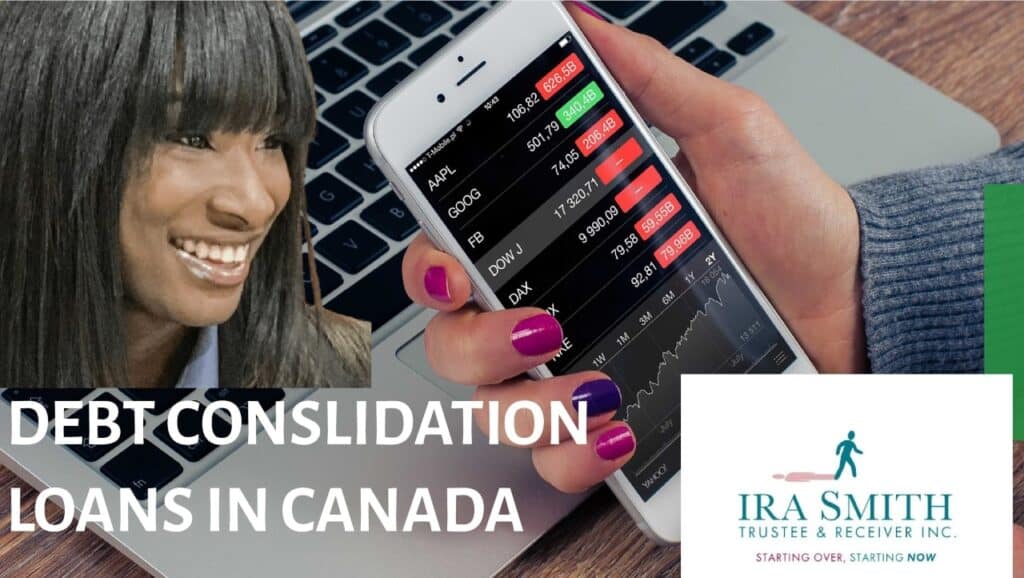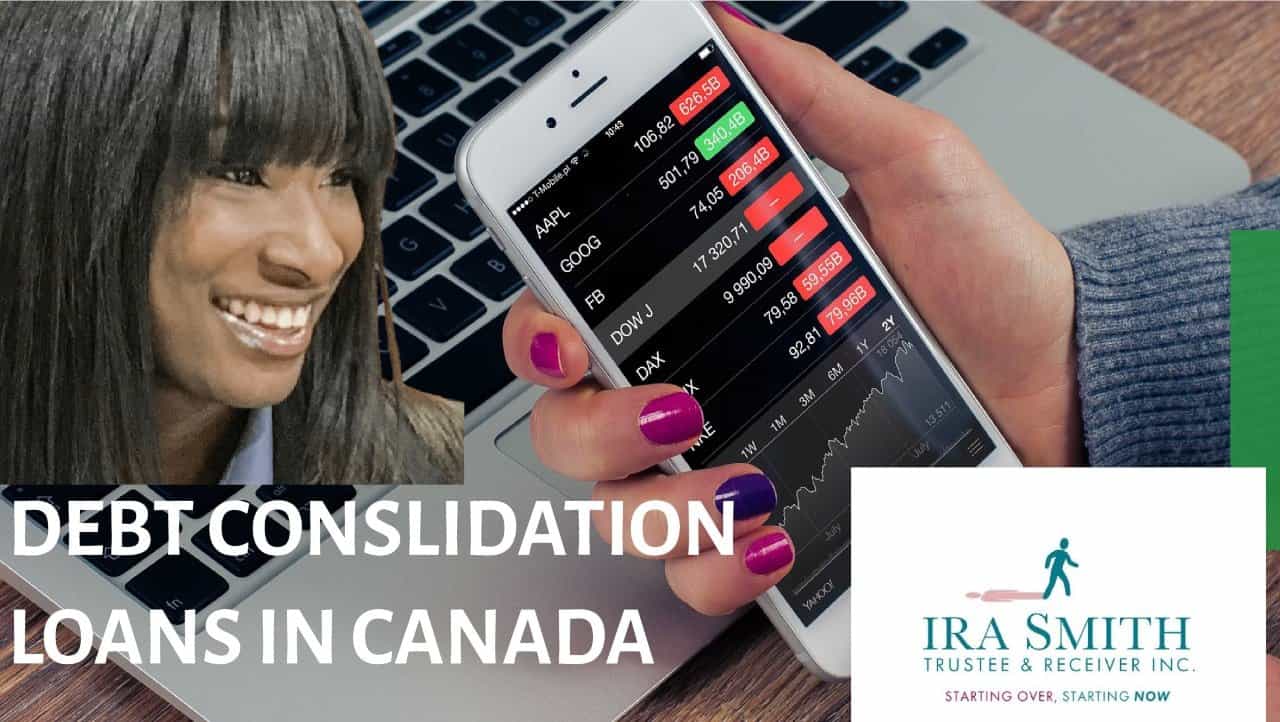By Brandon Smith, Senior Vice-President, Licensed Insolvency Trustee at Ira Smith Trustee & Receiver Inc.
Personal Guarantee Key Takeaways:
- Limited Liability is Often an Illusion: If you signed a personal guarantee (PG), your personal assets are directly tied to your business debt.
- P.G.s Are Strictly Enforced: Ontario courts uphold personal guarantees, even if you didn’t fully understand what you signed.
- Your Home, Savings, and More Are at Risk: Defaulting on a personal guarantee can lead to the seizure of your personal property.
- LITs Offer the Unique Solution: Only a Licensed Insolvency Trustee (LIT) like Brandon Smith at Ira Smith Trustee & Receiver Inc. can legally restructure both your corporate or personal debts under Canadian insolvency law.
- Don’t Wait, Act Now: Proactive advice from an LIT is crucial to protect your financial future across the Greater Toronto Area.
Introduction: Navigating the Critical Crossroads of Business and Personal Liability
You started a business, likely as an Ontario numbered company, to protect your personal assets. You understood “limited liability” meant your personal finances were separate from your company’s. This is a fundamental reason why many entrepreneurs choose incorporation in cities from Toronto to Aurora and beyond. But then you signed it – that seemingly routine document called a personal guarantee. For many business owners across the Greater Toronto Area, from Toronto to Vaughan, Mississauga to Markham, this single signature shatters the illusion of limited liability, turning your separate corporate entity into a direct link to your personal wealth.
When your business faces financial distress, that personal guarantee transforms from a formality into a profound threat, putting your home, savings, and future on the line. It’s a critical crossroads where corporate responsibilities spill over into your personal life, often with devastating speed. Understanding this critical crossroads before crisis hits, or knowing your options when it does, is not just wise – it’s essential for your financial survival and peace of mind. Without proper guidance, the path from corporate debt to personal ruin can feel inescapable.
Understanding the Personal Guarantee: The Foundation of Individual Liability
A personal guarantee (PG) is a legally binding promise you, as an individual, make to personally repay a business debt if your company cannot. It bypasses the limited liability protection that an incorporated company usually offers.
Defining a Personal Guarantee: More Than Just a Signature
A personal guarantee is a contractual agreement that holds you, the business owner, personally responsible for your company’s debts. This means that if your business, say, a thriving retail store in Richmond Hill or a busy construction company in Woodbridge, defaults on its financial obligations, the lender or creditor can legally come after your personal assets to recover the money owed. It’s a direct commitment from you, the person, not just your company, and it’s taken very seriously by courts across Ontario. Many entrepreneurs sign these without fully grasping the long-term implications, viewing them as just another piece of paperwork to get the deal done.
The Mechanics: How Your Personal Assets Become Collateral
When a business defaults on a loan or lease that is backed by a personal guarantee, the lender or landlord doesn’t just stop at the company’s assets. Because of your signature on the PG, they gain the legal right to pursue your personal assets. This can include your personal bank accounts, investments, real estate (like your family home, cottage, or other properties), vehicles, and even future wages through garnishment. Essentially, your personal financial well-being becomes collateral for your business’s obligations. This is a crucial detail that distinguishes a guaranteed debt from a purely corporate one. It fundamentally shifts the risk from the corporate entity to the individual who signed the document, making it a very powerful tool for creditors.
Why Lenders and Landlords Demand Them
Lenders (like banks and credit unions) and landlords demand personal guarantees primarily to reduce their risk. Many small and medium-sized businesses, especially new or rapidly growing ones in areas like Richmond Hill or Newmarket, may not have enough established credit history or substantial assets to secure a loan on their own.
A personal guarantee provides an extra layer of security, giving creditors confidence that they will recover their funds even if the business itself falters. It shows the business owner’s personal commitment to the venture.
Without it, many businesses would struggle to get the financing or commercial leases they need to operate, effectively stifling entrepreneurial growth in communities across Ontario. It’s often the price of doing business for small enterprises that don’t yet have the balance sheet of a large corporation.
Deciphering the Types of Personal Guarantees
Not all personal guarantees are the same, and understanding the nuances of each type is crucial for any business owner in Ontario.
- Unlimited Personal Guarantee: This is the most common and, frankly, the riskiest type of personal guarantee. It makes you fully responsible for the entire business debt, including the principal amount, accumulated interest, any legal fees incurred by the creditor, and any other associated costs, with absolutely no cap. If your business in Concord or Thornhill takes out a $500,000 loan, and you sign an unlimited personal guarantee, you are personally liable for that full $500,000 plus all additional charges, even if your personal assets only amount to $200,000. This type of guarantee truly exposes all your personal assets to the maximum extent.
- Limited Personal Guarantee: This type restricts your liability to a specific, predetermined amount or a certain percentage of the debt. For example, you might only be responsible for a set dollar amount, say $100,000, regardless of the total business debt. Or, if there are multiple guarantors, you might be responsible for only 50% of the loan. This offers a significant advantage by capping your potential personal exposure, making it a more palatable option for many business owners. Negotiating for a limited guarantee is always a wise strategy if possible.
- Joint and Several Personal Guarantee: This type is often found in businesses with multiple owners or partners, common in collaborative business environments like those found in Woodbridge or Concord. While two or more people guarantee the loan, “joint and several” means each individual guarantor is legally responsible for the full amount of the debt, not just their proportional share. If one guarantor cannot pay due to personal financial issues, the lender can pursue the other guarantor(s) for the entire outstanding balance. This is a critical point that many business partners overlook, often leading to severe financial and personal disputes when a business fails. It means your personal finances are not only tied to the business but also to the financial health of your co-guarantors.
- Conditional vs. Unconditional Personal Guarantee:
- Conditional: A conditional personal guarantee is tied to specific conditions that must be met before the guarantee can be enforced. For instance, you might only be liable until the business reaches a certain sales target, if specific company assets are sold first, or if the primary borrower files for bankruptcy. These are less common, as lenders generally prefer the directness of an unconditional guarantee.
- Unconditional: Most personal guarantees are unconditional. This means the lender can demand payment from you directly upon the business’s default, without first pursuing the business or its assets. They don’t need to wait for any specific events or try to recover from the company first; they can go straight to you, the personal guarantor. This provides the quickest and most direct path to recovery for the creditor.
Common Scenarios Where Personal Guarantees Appear
Personal guarantees are woven into the fabric of many commercial dealings for small and medium-sized businesses in Ontario, often without the owner fully realizing their pervasive nature.
- Business Loans and Lines of Credit: This is arguably the most frequent scenario. Banks and other financial institutions almost always require a personal guarantee from business owners when extending credit. This is particularly true for startups or businesses without substantial collateral. Whether you’re securing a loan for equipment for your manufacturing plant in Markham or a line of credit to manage cash flow for your Toronto-based tech startup, a personal guarantee will likely be a non-negotiable term. Lenders want to know that the individual behind the business is committed and has personal stakes.
- Commercial Leases: When renting office, retail, or industrial space in busy areas like Mississauga or Thornhill, landlords frequently demand a personal guarantee, more commonly worded in the lease document as a personal indemnity, from business owners. This ensures rent payments even if the business goes under or defaults on the lease agreement. A landlord doesn’t want to be left with an empty space and unpaid rent, so your personal guarantee serves as their insurance policy hoping the rent continues to be paid, regardless of the business’s solvency. In reality, if the business becomes insolvent, the personal guarantor/iindemnifier has lost their source of income too and will be pursued by the landlord.
- Franchise Agreements: Becoming a franchisee often involves a significant upfront investment, ongoing royalty payments, and adherence to various operational standards. Franchisors typically require personal guarantees from franchisees to secure these commitments. They are investing in you as much as you are investing in their brand, and your personal guarantee ensures your full commitment to the success and financial obligations of the franchise, whether it’s a restaurant in Vaughan or a service provider in Newmarket.
- Supplier Agreements: For significant credit lines with suppliers, especially for goods that are critical to your operation, a personal guarantee might be requested to ensure payment for goods or services. This is more common if the business has limited credit history, is new, or if the value of the supplies is substantial. A supplier wants assurance that they will be paid, particularly if their product is a major cost component for your business.
- Government-Backed Loans: Even loans partially guaranteed by government programs (like some through the Business Development Bank of Canada or Export Development Canada) often still require a personal guarantee from the business owner for the unguaranteed portion, or to ensure compliance with loan terms.

The Profound Personal Guarantee Impact: Benefits vs. Grave Risks to Personal Assets
Signing a personal guarantee is a double-edged sword for any Ontario business owner. It presents both potential benefits that facilitate business growth and grave risks that can jeopardize personal financial stability.
Benefits:
- Access to Financing: For many new or small businesses, especially those just starting out in competitive markets like Toronto or Vaughan, a personal guarantee is the only way to secure necessary loans or credit lines. Without it, many promising ventures would be unable to obtain the capital needed to start, expand, or even operate day-to-day. It’s often the key that unlocks crucial funding, enabling growth and operational continuity.
- Improved Loan Terms: The added security provided by a personal guarantee might lead to more favourable financial terms. Lenders may be willing to offer lower interest rates, extended repayment periods, or larger loan amounts when they have the assurance of a personal guarantee, recognizing the reduced risk. This can significantly impact the long-term financial health and viability of the business.
- Increased Creditor Confidence: A personal guarantee signals your strong personal commitment to the business. It demonstrates to lenders and landlords that you are fully invested and confident in your venture’s success, building trust and potentially opening doors to future financial opportunities or partnerships.
Grave Risks to Personal Assets:
- Loss of Personal Assets: This is the most significant and immediate danger. If your business defaults, creditors can legally seize your home, family cottage, car, personal bank accounts, savings, investments, and other valuable possessions to satisfy the debt. For many, their home represents their largest personal asset and their life savings, all of which can be put at risk.
- Impact on Personal Credit: A business default, followed by a personal guarantee claim, could damage your personal credit score. This makes it incredibly difficult to secure future personal loans, mortgages, car loans, or even credit cards, potentially for many years. It could affect your ability to rent property or even get certain jobs.
- Unlimited Liability: As discussed, many personal guarantees are unlimited, meaning you’re on the hook for the entire debt, including all associated costs, which can far exceed the initial loan amount. This can be financially ruinous, as the total debt can balloon rapidly with interest and legal fees.
- Personal Bankruptcy: If your personal assets are insufficient to cover the guaranteed debt after your business fails, and you haven’t yet secured a new source of income that could help fund a viable consumer proposal to deal with your debt, you could be forced into personal bankruptcy. This is a formal legal process under the Bankruptcy and Insolvency Act (BIA) that leads to long-lasting financial consequences and can affect your personal and professional reputation.
- Strain on Relationships: In joint and several guarantees, disagreements among business partners about repayment obligations when the business faces distress can lead to severe personal disputes, legal battles, and the breakdown of relationships, adding emotional turmoil to financial stress. This is particularly true in family businesses or partnerships where trust is paramount.
Before You Sign: Due Diligence & Negotiation Playbook
While personal guarantees are often unavoidable for small business owners in Ontario, you can take proactive steps to protect yourself before committing your signature. This due diligence can save you immense heartache and financial hardship down the line.
- Read Every Word, No Exceptions: Never assume anything. It is absolutely critical to thoroughly read the entire personal guarantee agreement, no matter how long, complex, or full of legal jargon it appears. Many people skim these documents, missing crucial clauses that can severely impact their personal finances. If you don’t understand something, ask.
- Seek Independent Legal Advice: This is not merely a suggestion; it is critical. Have a lawyer, who is independent of the lender or landlord, review the personal guarantee in detail. They can explain the full extent of your liability, identify any hidden clauses, and advise you on the specific risks involved. While some provinces, like Alberta, require independent legal advice by law for certain PGs, it is highly recommended in Ontario as best practice, even if not mandatory. This small investment can prevent a catastrophic loss.
- Negotiate Clauses to Mitigate Risk: Many business owners believe personal guarantees are non-negotiable, but this isn’t always true. While the core requirement might remain, you can often negotiate key terms:
- Limit the Amount: Always try to cap your liability to a specific dollar amount or a percentage of the total debt. This sets a clear ceiling on your personal exposure, which is far better than an unlimited guarantee.
- Limit the Term: Can the guarantee expire after a certain number of years, or once a substantial portion of the loan (e.g., 50% or 75%) is repaid? A finite term reduces your long-term risk.
- Require Exhaustion of Company Assets First: Try to insist on a clause that states the lender must pursue all company assets and collateral before coming after your personal assets. This can delay or even avoid personal liability if the business has significant assets. (Note: This is often difficult to negotiate, as creditors prefer direct access.)
- Release Upon Sale of Ownership: If you plan to sell your ownership stake in the business, negotiate a clause that automatically releases you from the personal guarantee once the sale is complete and approved by the lender.
- Joint vs. Several Liability: If there are multiple owners, try to ensure liability is strictly “joint” (meaning each is only responsible for their specific, agreed-upon share), rather than “joint and several.” As discussed, “joint and several” means you could be on the hook for everyone’s portion.
- Understand Recourse Agreements with Partners: If you’re guaranteeing a loan with business partners, have a clear, written agreement among yourselves about indemnification. This means if one partner is forced to pay on the PG, the others are legally obligated to reimburse them for their share.
- Independent Witnessing: While not always legally required in Ontario, the lender or landlord requirimg an independent adult witness your signature adds evidentiary strength if the enforceability of the guarantee is ever challenged in court.
You may have no leverage in actually getting any terms of the personal guarantee amended, that does not mean you should not try.
When the Business Defaults: Navigating the Aftermath
The moment your business defaults on a loan or lease backed by a personal guarantee is a critical juncture. How you react can significantly impact your personal financial future.
The Default Process & Legal Recourse
When a business defaults on a loan or lease backed by a personal guarantee, the creditor will typically follow a structured legal process:
- Issue a Demand Letter: The creditor will formally notify both the business and you, as the guarantor, of the default. This letter will demand immediate full payment of the outstanding debt, including any accrued interest and penalties. For the borrower, the landlord also issues the appropriate notice required under the BIA.
- Initiate Legal Action: If the demand for payment isn’t met, the creditor can, and often will, sue you personally. Ontario courts enforce personal guarantees strictly, meaning your signature is often all they need to establish your liability. This lawsuit will seek a judgment against you for the full amount owed.
- Obtain a Judgment: If successful in court (which is common if the PG is valid), the creditor will obtain a court judgment against you personally. This judgment confirms your legal obligation to pay the debt.
- Enforce the Judgment: With a judgment in hand, the creditor has powerful legal tools to recover the money. This can lead to:
- Wage Garnishment: A court order can be issued to your employer, directing a portion of your employment income to be redirected directly to the creditor each pay period until the debt is satisfied.
- Bank Account Seizure: Funds in your personal bank accounts can be frozen and taken by the creditor to cover the debt.
- Asset Seizure: Your personal property, including real estate (like your family home), vehicles, and investments, can be seized and sold to satisfy the debt. This can be a devastating process, potentially forcing the sale of assets you rely on.
- Registration of a Writ: A writ of execution can be registered against your property (like your home), impacting your ability to sell or refinance it until the debt is paid.
Protecting Assets Post-Default
Once a personal guarantee is called, options for protecting assets become significantly more limited. However, it’s vital to act quickly and strategically.
- Do Not Transfer Assets Fraudulently: Attempting to hide, transfer, or sell off assets after default in an effort to avoid creditors can be considered fraudulent conveyance or fraudulent preference under Canadian law. This can lead to severe legal penalties, including criminal charges, and will almost certainly worsen your financial situation, as the court can reverse these transactions. The best time to always seek professional advice before making any significant financial moves is BEFORE providing the personal guarantee. Post-default is already too late.
- Negotiate with the Creditor: Sometimes, a creditor may be willing to negotiate a payment plan, a reduced lump-sum settlement, or other terms if you demonstrate a genuine willingness to address the debt, even if you can’t pay it all immediately. This often requires professional assistance, as an experienced advisor can present your situation more effectively and explore options you might not know exist.
- Understand Exempt Assets: In Ontario, certain assets are exempt from seizure in a bankruptcy or other legal action. These are designed to allow individuals a basic level of survival. Examples include a portion of your household goods, tools of your trade (up to a certain value), some equity in a primary vehicle, some equity in a personal residence,and most life insurance policies. A Licensed Insolvency Trustee can provide a precise list of these protections, which can be crucial in preserving some financial stability.
The Indispensable Role of Professional Advice
When your business is struggling, and you’re facing demands on your personal guarantee, you need expert advice. This is not a situation to navigate alone.
The Unique Power of a Licensed Insolvency Trustee (LIT)
When your business is struggling, and you’re facing demands on your personal guarantee, you need expert advice. While lawyers can defend you in court or try to negotiate with creditors, they cannot offer the comprehensive solutions required to truly resolve both corporate and personal debt issues under Canada’s insolvency laws. This is where a Licensed Insolvency Trustee (LIT), like Brandon Smith, Senior Vice-President at Ira Smith Trustee & Receiver Inc., becomes your most critical ally.
LITs are the only federally regulated professionals legally authorized to administer all formal insolvency processes in Canada under the Bankruptcy and Insolvency Act (BIA). This unique mandate means we can address the “double bind” of corporate failure and personal guarantee exposure. We are not debt consultants or credit counsellors; we are officers of the court, licensed by the Canadian government, and uniquely positioned to provide legal pathways to debt relief. Whether your business is in Toronto, Vaughan, Markham, or any other community in Ontario, an LIT’s expertise is paramount.
Why Only an LIT Can Handle the “Double Bind”
Imagine your numbered company in Vaughan or Mississauga is in distress, and a lender is now pursuing you personally for a significant loan guaranteed by you. A lawyer can represent you in court, defend against the lawsuit, or try to negotiate with the creditor. While these services are valuable in certain contexts, a lawyer cannot provide the all-encompassing debt resolution solutions available under the Bankruptcy and Insolvency Act.
Here’s why only an LIT can effectively handle the complex interplay of corporate and personal insolvency, especially when personal guarantees are involved:
- Stop Collection Calls and Legal Action Immediately: Only the filing of a formal insolvency process (like a Consumer Proposal or personal bankruptcy) by an LIT automatically triggers a “stay of proceedings” under the BIA. This is a powerful legal injunction that legally halts all unsecured creditor actions, including collection calls, lawsuits, wage garnishments, and even proceedings to seize assets. A lawyer can defend against these actions, but they cannot unilaterally stop them as an LIT can by filing under the BIA. This immediate relief from creditor pressure is often the first and most critical step towards regaining control.
- Legally Reduce or Eliminate Debt: Lawyers can negotiate with creditors, but they don’t have the power to bind all creditors to a debt reduction agreement. An LIT, however, can administer a Consumer Proposal for individuals (which can include personal guarantee debt) or a Division I Proposal for corporations. These are formal, legally binding offers to creditors to pay back a portion of what’s owed, or extend the time to pay, typically resulting in a significant reduction of the overall debt. Once a Proposal is accepted by a majority of creditors (by dollar value), all included unsecured creditors are legally bound by its terms, even if they voted against it. This is a powerful, court-sanctioned tool no other professional can wield, allowing for a structured and manageable repayment plan or a full discharge of debt.
- Administer Personal or Corporate Bankruptcy: If restructuring isn’t feasible or desirable, an LIT is the only professional who can administer personal bankruptcy (to discharge personal guarantee debt and other unsecured personal debts) or corporate bankruptcy (to formally liquidate the business in an orderly manner). These processes provide a complete fresh financial start for individuals or an orderly wind-down for corporations, a service that lawyers cannot provide. An LIT ensures that the bankruptcy process adheres to all legal requirements, protecting the rights of both the debtor and the creditors.
- Holistic Approach to Interconnected Debt: The “double bind” of corporate failure and personal guarantee liability is precisely what LITs are designed to resolve. We understand how the corporate debt, the personal guarantee, and your personal finances are inextricably linked. We offer a holistic strategy that considers both the business’s situation and your personal financial health, finding the most efficient and legally sound solution for both. A lawyer’s approach often involves separate actions for corporate and personal legal issues.
Table: LIT vs. Lawyer in Resolving Personal Guarantee Debt
Feature | Licensed Insolvency Trustee (LIT) | Lawyer (Debt-Related Matters) |
|---|---|---|
Legal Authority | Federally regulated under the Bankruptcy and Insolvency Act (BIA), an officer of the court. | Regulated by provincial law societies; represents clients in legal proceedings. |
Debt Restructuring | Can legally reduce and consolidate unsecured debt via Consumer Proposals or Division I Proposals, binding all creditors to a formal plan. | Can negotiate with individual creditors, but cannot force them to accept a reduced settlement or legally bind all creditors to a collective plan. |
Stopping Creditor Action | Filing a Proposal or Bankruptcy triggers an immediate, legal “stay of proceedings,” halting all collections, lawsuits, and garnishments. | Can defend lawsuits and send cease and desist letters, but cannot unilaterally stop legal actions without a specific court order for each. |
Bankruptcy Administration | Only LITs can administer personal or corporate bankruptcies, leading to debt discharge or orderly liquidation. | Cannot administer bankruptcy; typically refers clients to an LIT when bankruptcy is the appropriate solution. |
Holistic Approach | Addresses both corporate insolvency and personal liability from guarantees through BIA processes. | Primarily focuses on legal defense or specific debt negotiations; often separates corporate legal issues from personal liability. |
Cost Structure | Fees for consumer insolvencies are federally regulated and often included in the proposal payment; initial consultation often free. | Hourly billing is common; costs can become very expensive, especially in litigation, with no guarantee of debt reduction. |
Goal | To provide a legal path to debt relief and a fresh financial start for individuals and businesses, maximizing asset retention. | To represent clients’ legal interests, defend against claims, pursue legal action, or draft legal agreements. |
When facing the complexity of a personal guarantee, especially in conjunction with business distress, you need the specialized expertise and legal authority that only an LIT provides. Their role is unique and indispensable for navigating Canada’s insolvency laws.
Brandon’s Personal Guarantee Take:
“As Senior Vice-President at Ira Smith Trustee & Receiver Inc., I’ve seen countless Ontario business owners grapple with the crushing weight of a personal guarantee. The initial shock of realizing their personal assets are exposed is immense. Often, people feel isolated and overwhelmed, believing there’s no way out. My team and I are here to tell you: you are not alone, and you absolutely have options. We understand the fear, the stress, and the uncertainty that comes with such a significant financial threat.
Our role is to provide clear, empathetic guidance through the Bankruptcy and Insolvency Act. We’re licensed by the Canadian government specifically to help individuals and businesses like yours find relief from overwhelming debt, including those tied to personal guarantees. Don’t let pride or fear delay seeking help; early action can make all the difference in preserving your home, your savings, and your financial future. We serve clients across the GTA, from Aurora to Newmarket, and are ready to listen without judgment.”
Frequently Asked Questions (FAQs)
Q: What is a personal guarantee and how does it work in Ontario?
A: A personal guarantee is a legally binding agreement where an individual (usually a business owner) promises to be personally responsible for a company’s debt if the company cannot pay it. In Ontario, if the business defaults, the lender can pursue your personal assets directly, bypassing the usual limited liability protection of your corporation. This means your personal wealth is on the line.
Q: Can a personal guarantee be discharged or eliminated if my business fails?
A: Yes, personal guarantee debt can often be discharged or significantly reduced through formal insolvency processes administered by a Licensed Insolvency Trustee (LIT). A Consumer Proposal or personal bankruptcy, for example, can include and eliminate personal guarantee obligations, providing you with a fresh financial start and relief from the debt.
Q: Why should I consult a Licensed Insolvency Trustee (LIT) if I’m facing personal guarantee debt?
A: An LIT is the only professional in Canada legally authorized to administer government-regulated insolvency proceedings like Consumer Proposals and bankruptcies under the Bankruptcy and Insolvency Act. This unique legal authority means an LIT can legally stop collection calls, lawsuits, and wage garnishments, and can structure a plan (a Proposal) that reduces or eliminates your personal guarantee debt, binding all creditors. Lawyers cannot offer these specific debt restructuring solutions that provide a legal fresh start.
Q: What is “joint and several” liability in a personal guarantee?
A: “Joint and several” liability means that if multiple people sign a personal guarantee, each person is individually responsible for the entire amount of the debt, not just a portion or their specific share. The creditor can choose to pursue any one of the guarantors for the full outstanding balance, making it a particularly risky type of guarantee for business partners.
Q: Will signing a personal guarantee affect my personal credit score?
A: Yes, a personal guarantee ties your personal credit to your business’s financial health. If your business defaults and you’re unable to meet the obligations of the personal guarantee, it will negatively impact your personal credit score. This can make it difficult to get personal loans, mortgages, or credit cards in the future.
Q: Are there any assets in Ontario that are protected from seizure if I default on a personal guarantee?
A: Yes, in Ontario, certain assets are considered “exempt” from seizure in insolvency proceedings, up to specific values. These can include a portion of your household goods, tools of your trade, some equity in a primary vehicle, most RRSPs and RRIFs (except for contributions made in the 12 months before filing for insolvency), and most life insurance policies. A Licensed Insolvency Trustee can provide you with the exact details of these exemptions.
Conclusion: Take Control of Your Financial Future – Contact Ira Smith Trustee & Receiver Inc.
The personal guarantee is a powerful and often misunderstood legal document that can have devastating effects on Ontario business owners and their families. While it may seem like a simple step to secure vital business financing, it truly makes your personal assets the ultimate collateral, blurring the lines between your business and personal financial security.
If your numbered company in Toronto, Vaughan, Woodbridge, Concord, Mississauga, Thornhill, Richmond Hill, Markham, Aurora, or Newmarket is facing financial difficulties, and personal guarantees are a significant concern, you need to act quickly and decisively. Relying solely on general legal advice may not provide the comprehensive, legally binding debt restructuring solutions you truly need to protect your future.
As a Licensed Insolvency Trustee, Ira Smith Trustee & Receiver Inc., led by Senior Vice-President Brandon Smith, possesses the unique legal authority and extensive expertise to help you navigate these complex challenges. We can explore all your options, from Consumer Proposals that reduce your debt and protect your assets, to guiding you through a corporate and personal bankruptcy process if necessary. Our approach is professional, empathetic, and always focused on achieving the best possible outcome for your specific situation. We are here to bring clarity and provide a pathway forward, no matter how dire things may seem.
Don’t let the silent threat of a personal guarantee lead to financial ruin. Contact Ira Smith Trustee & Receiver Inc. today for a free, no-obligation consultation. We are here to help you understand your situation, explore your legal options under Canadian insolvency law, and create a clear path towards a debt-free future. You deserve a fresh start, and we are here to help you achieve it.
Take the first crucial step towards a brighter financial future for your business. Contact Ira Smith Trustee & Receiver Inc. today to schedule your free initial consultation. Your business’s pivot to sustainable success starts now.
Don’t let financial uncertainty dictate your future. If you or your business is struggling with debt, losing sleep, or facing the possibility of legal action, contact Ira Smith Trustee & Receiver Inc. today. We offer a free, confidential consultation to discuss your situation, explain your options in plain language, and help you develop a clear, actionable plan. Our team of Licensed Insolvency Trustees is dedicated to providing the compassionate, professional support you need to regain control and achieve a debt-free life. Take the first step towards a brighter financial future – call us now.
Ira Smith Trustee & Receiver Inc. is licensed by the Office of the Superintendent of Bankruptcy and is a member of the Canadian Association of Insolvency and Restructuring Professionals.
- Phone: 905.738.4167
- Toronto line: 647.799.3312
- Website: https://irasmithinc.com/
- Email: brandon@irasmithinc.com
Disclaimer: This analysis is for educational purposes only and is based on the cited sources and my professional expertise as a licensed insolvency trustee. The information provided does not constitute legal or financial advice for your specific circumstances.
Every situation is unique and involves complex legal and factual considerations. The outcomes discussed in this article may not apply to your particular situation. Situations are fact-specific and depend on the particular circumstances of each case.
Please contact Ira Smith Trustee & Receiver Inc.get in touch with Ira Smith Trustee & Receiver Inc.
About the Author:
Brandon Smith is a Senior Vice-President at Ira Smith Trustee & Receiver Inc. and a licensed insolvency trustee serving clients across Ontario. With extensive experience in complex court-ordered receivership administration and corporate insolvency & restructuring proceedings, Brandon helps businesses, creditors, and professionals navigate challenging financial situations to achieve optimal outcomes.
Brandon stays current with landmark developments in Canadian insolvency law. He brings this cutting-edge knowledge to every client engagement, ensuring his clients benefit from the most current understanding of their rights and options.







